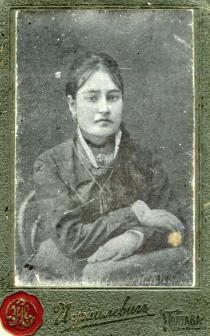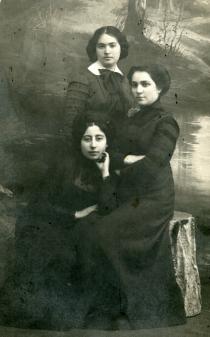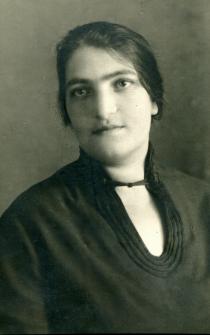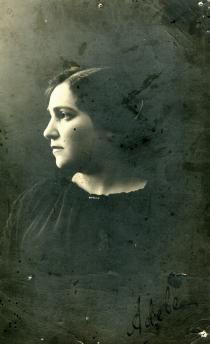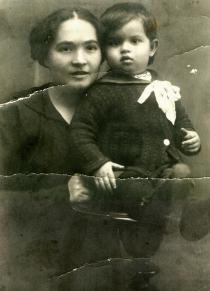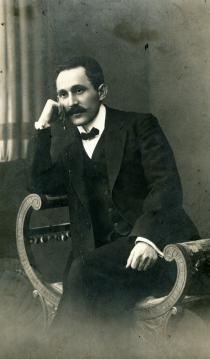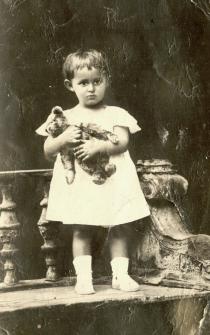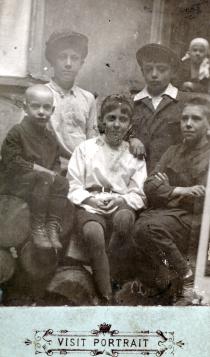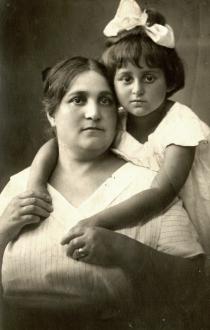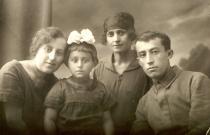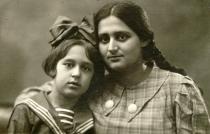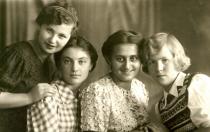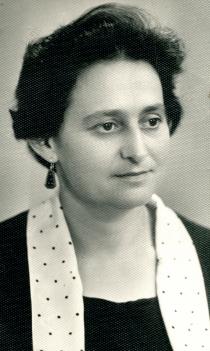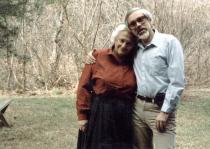From left to right: my mother's sister Sonia Rabichkina [nee Finkelshtein], my mother's friend and my mother Adel Finkelshtein [nee Izrailevich]. Sonia got married and was moving to Kolomak. She was photographed before her departure. Photographer D. Meyerovich, Poltava, 1912.
My grandparents on my mother's side had six children. Their oldest son, Savva, was born in 1887. My mother Adel was born in 1890, Sonia in 1892, Nyura in 1896, Aron in 1898 and the youngest, Tania, in 1902. Savva and Aron finished cheder, my mother and her sisters studied in grammar school for a few years. After that my mother didn't work or study. She was helping my grandmother about the house. My grandparents were very religious and my mother, being their older daughter, did her best to please them. My mother went to the market to buy a chicken and took it to the shochet to have it slaughtered, and she bought all kosher food for them.
Sonia married an accountant, Michael Rabichkin, a Jewish man. He worked at the sugar factory in Kolomak near Kharkov. Aunt Sonia moved to Kolomak. Their son, Boris, was born in 1914. Shortly after the revolution the Rabichkin family moved to Kharkov. Boris studied at the Jewish school. He spoke Yiddish fluently and even read Hugo in Hebrew. [Editor's note: Victor Hugo, French poet and novelist.] After school he couldn't enter a [higher educational] institute, as new Soviet laws only allowed young people from working class families to study in higher educational institutions. He finished an industrial school and became a worker at the Locomotive Repair Plant in Kharkov. Later he became a correspondent for the plant newspaper. He got married and had a son, Erik. His marriage didn't last long - they divorced. Boris entered the Faculty of Literature at the Pedagogical Institute in Kharkov. He married a Jewish woman, Fania Shtitelman. Their son, Sima, was born in the late 1930s.

